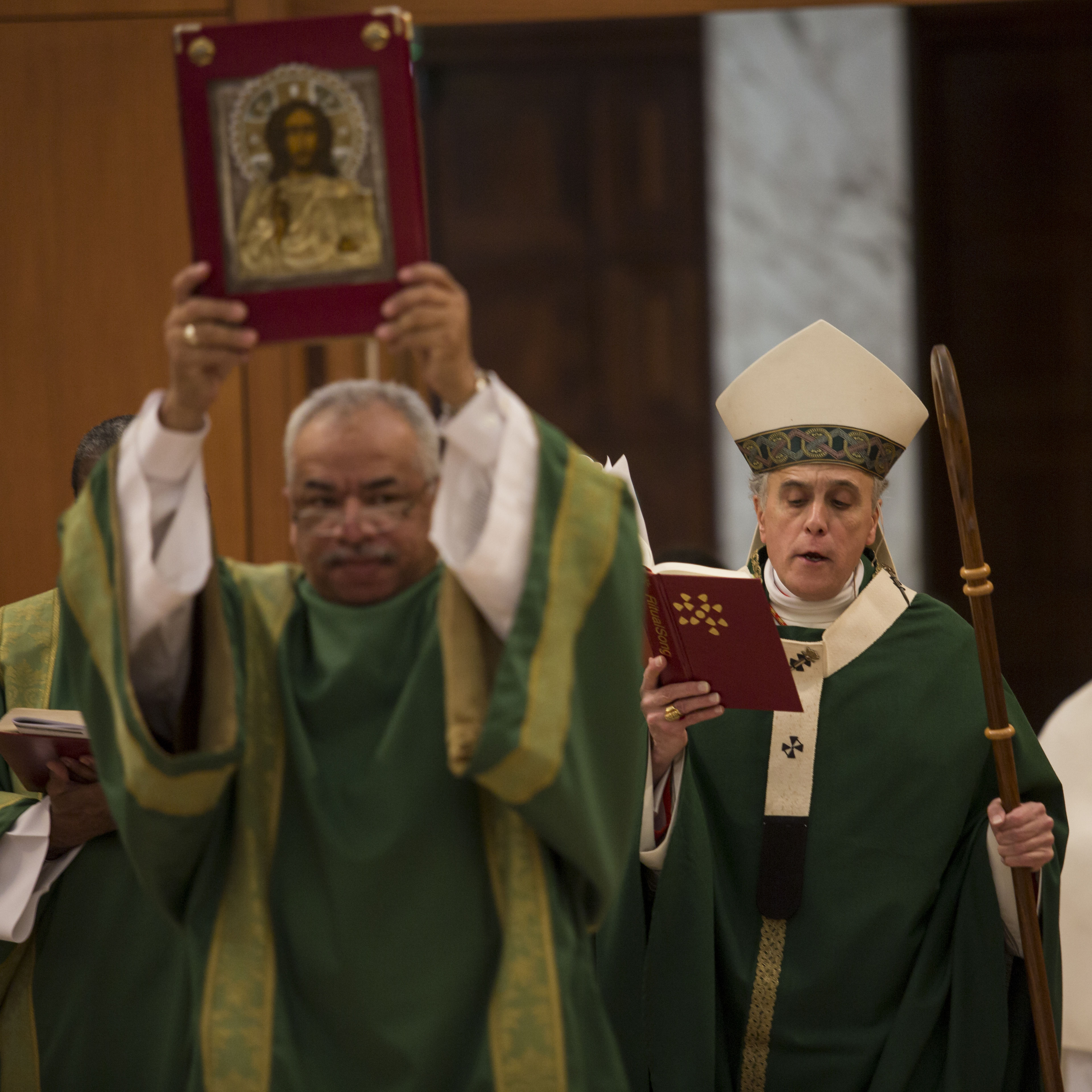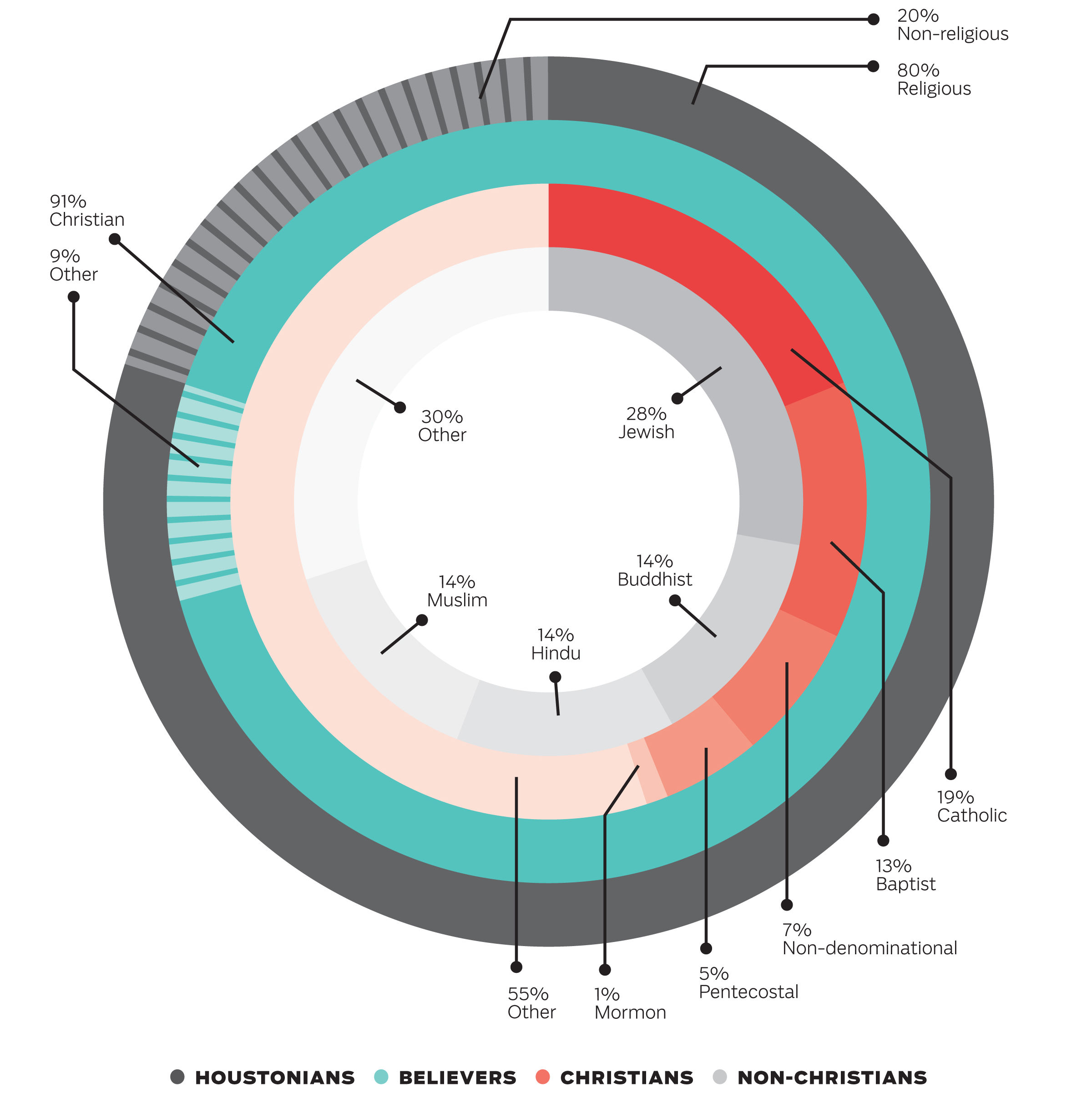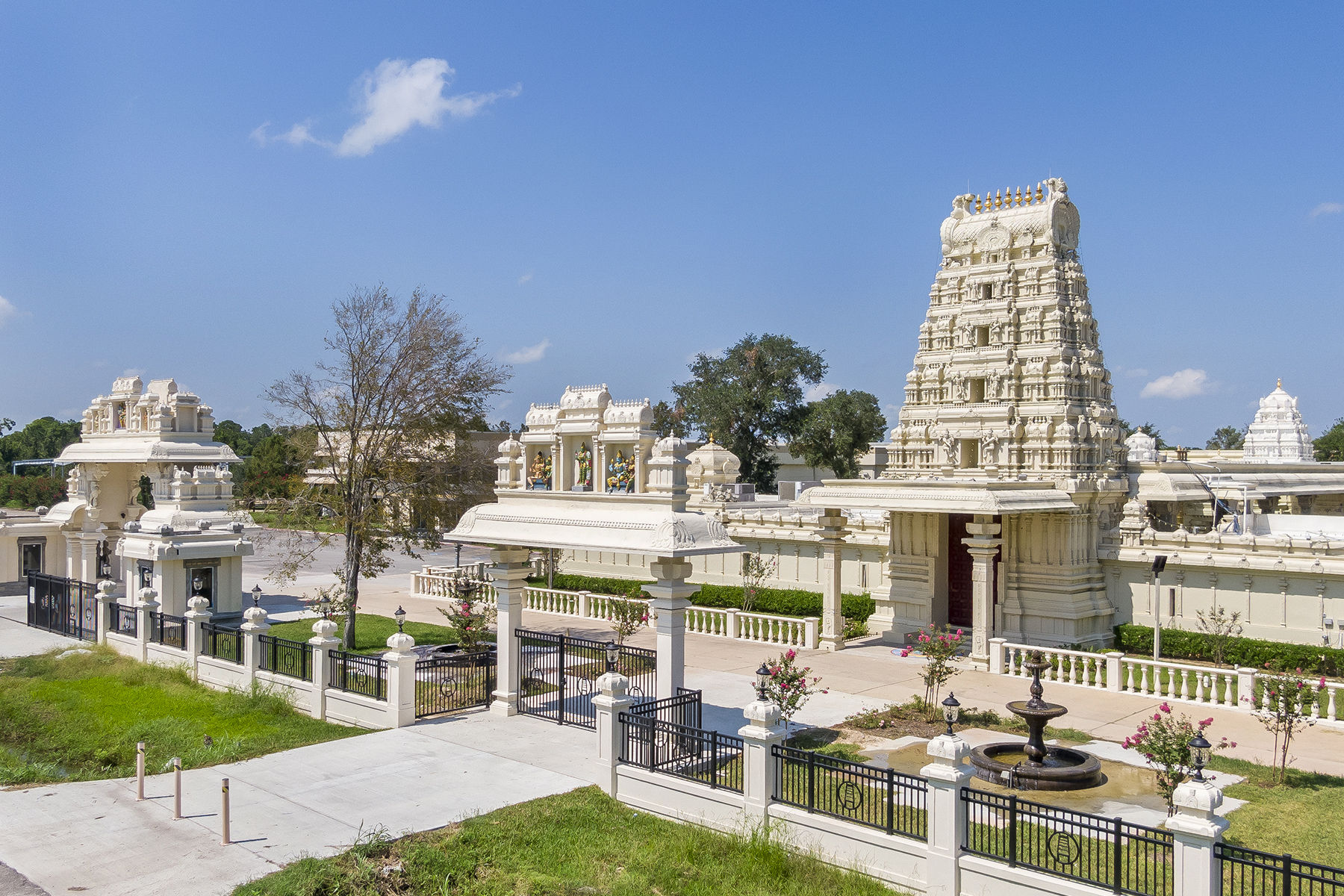Profiles in Faith: A Chat with Six of Houston's Religious Leaders
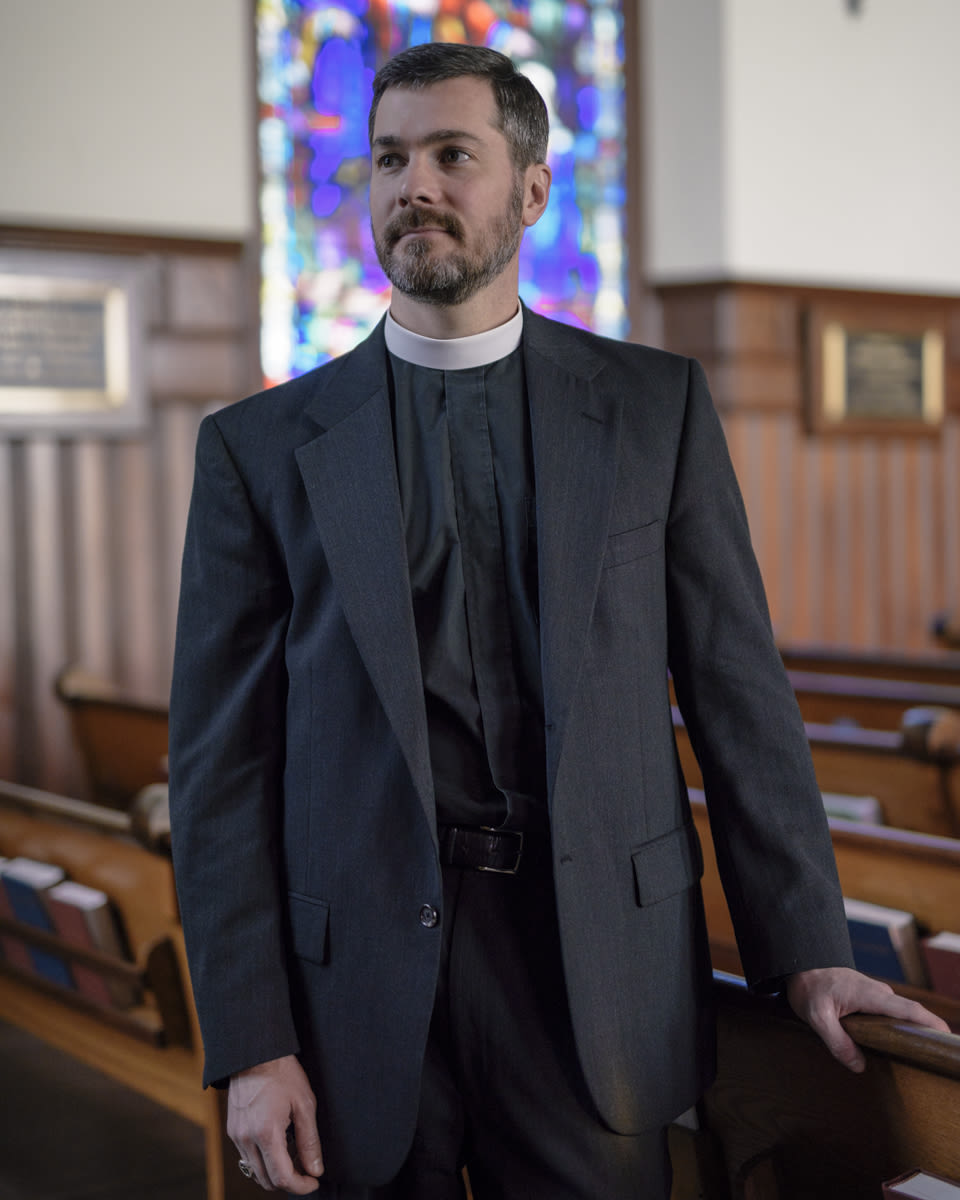
"To be with people of faith, desirous to know God and curious about God, is thrilling to me in the truest sense of that word." —The Very Reverend Barkley Thompson
Image: Max Burkhalter
The Very Reverend Barkley Thompson
Christ Church Cathedral, Downtown
You've served in churches in small towns throughout the south. What makes serving in such a large city like Houston different?
My first parish was in the suburbs of Memphis, and while I loved the church and its people, my sense of vocational calling is very much to downtown, urban ministry. My second parish was in Roanoke, Virginia. While Roanoke is a small city, St. John’s was very much a downtown parish and included extensive outreach to the poor and to urban children. In Houston, those same urban dynamics are magnified exponentially.
What do you think makes your church stand out in Houston?
Christ Church has been downtown for 177 years. It’s the oldest church in Houston, and throughout its long and storied history it has remained firmly committed to downtown even as most other congregations moved to the edges of town. The Cathedral’s theme is taken from Psalm 46, “God is in the midst of the city,” and that truly is our distinctive identity in Houston. Through the Beacon, the Cathedral sponsors extensive ministries to the homeless and working poor. Our presence in the heart of the judicial, business, and financial centers of Houston serves as a reminder that God exists in the heart of every aspect of our lives.
What's your favorite way to bring your community together?
I love when the community gathers for the preaching or teaching moment. To be with people of faith, desirous to know God and curious about God, is thrilling to me in the truest sense of that word. It is also incredibly satisfying when the community comes together in service. For instance, in December we host Christmas at the Cathedral, and this past December the event benefitted the children and families of Rusk Elementary School, our partner in the inner city. Dozens of Cathedral volunteers hosted one hundred seventy guests, complete with real snow blown from an ice truck and a delicious Christmas dinner. The joy the community gave to the children was sublime. I love it when the Cathedral community gathers in that way.
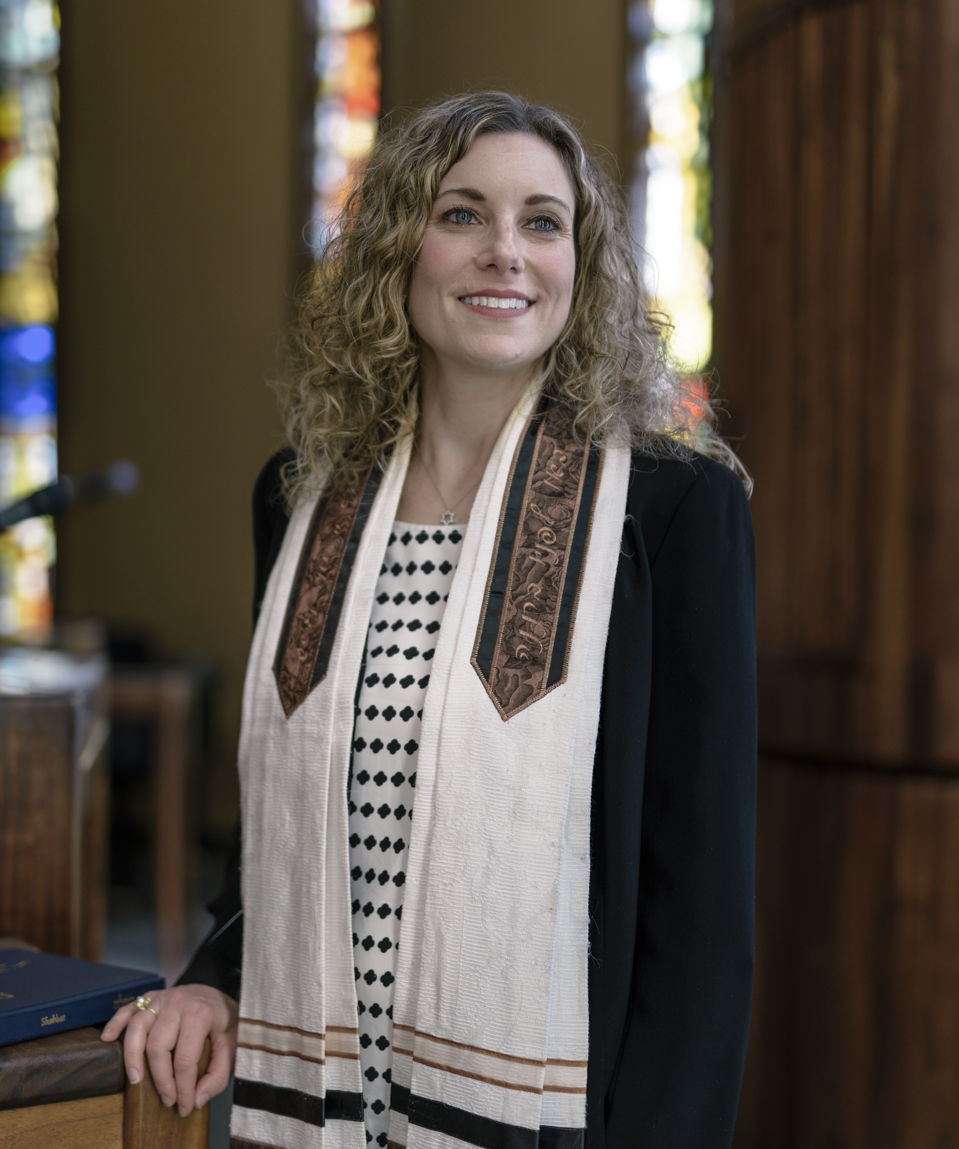
"I think the warmth and the ease people feel when they come here is very important, and I think as a woman that is something that I can very much lend." —Rabbi Adrienne Scott
Image: Max Burkhalter
Rabbi Adrienne Scott
Congregation Beth Israel, Meyerland
How have you seen your community change in the past 11 years?
Our congregation is 161 years old—actually nearly 162 now, it’s hard to believe. We’ve seen a lot of change here. At the very beginning of the inception of the movement, we were all about going more mainstream. Now, we’re seeing that many people want to return to the traditions. They want to understand what they are and chose to do them for themselves. So [there’s] a lot more Hebrew, a lot more of our traditional music that’s chanted. How do we find a place for that here in this synagogue and, again, still maintain some of the very quintessential traditional pieces? We just naturally evolved that way. I think the warmth and the ease people feel when they come here is very important, and I think as a woman that is something that I can very much lend. Not that my male counterparts aren’t very wonderful listeners and very sensitive, but I think there’s something that people feel a little more prone to a woman on occasion.
Do you feel like you’ve become that someone—especially young girls—can come to whenever they need that sort of female voice to listen to?
Absolutely. I think that they’re understanding that a woman can do and be many things, just as I incorporate many different parts of who I am into my work as a rabbi. I think it’s nice to be able to say we have a young girl who wants some support or is having a rough time, just like I would say to my male colleagues, "I have a young man who’s really in need of a strong male role model and influential leader in his life." We collaborate a lot, and the great fortune of being at Beth Israel is that we do have a really cohesive clergy team. None of us, interestingly enough, are born and raised in Houston. We’re all outsiders, which is also very nice. So we understand what it means to come from a different place, but appreciate all the great blessings that we have here in this city.
Do you think you find more young people still going to events and volunteering than actually in services?
Totally. Definitely, definitely. I would say that there are a lot of people who feel a close tie, culturally—who want to help, who want to support, who feel very strong about creating a Jewish home and raising Jewish children—but Friday at 6:30, they’re not necessarily coming to worship. I think that’s okay. As long as we’re able to keep a connection up, whether it’s through a Facebook group or through an online discussion, or really anything—having text study in a bar—all of that is very possible. We want to offer something that’s very worthwhile, that’s very stimulating, and can help them maintain a strong tie to Beth Israel, whatever way that may be. If that’s a beach in Galveston, great. If it’s going and leading a service in Uptown Park, that’s what it is. We do all of that. There’s really not too many things that are off limits here. We try to be creative and innovative if we can. We’re not going to move Rosh Hashanah services to the beach in Galveston, but aside from that, there’s a lot that we can do.
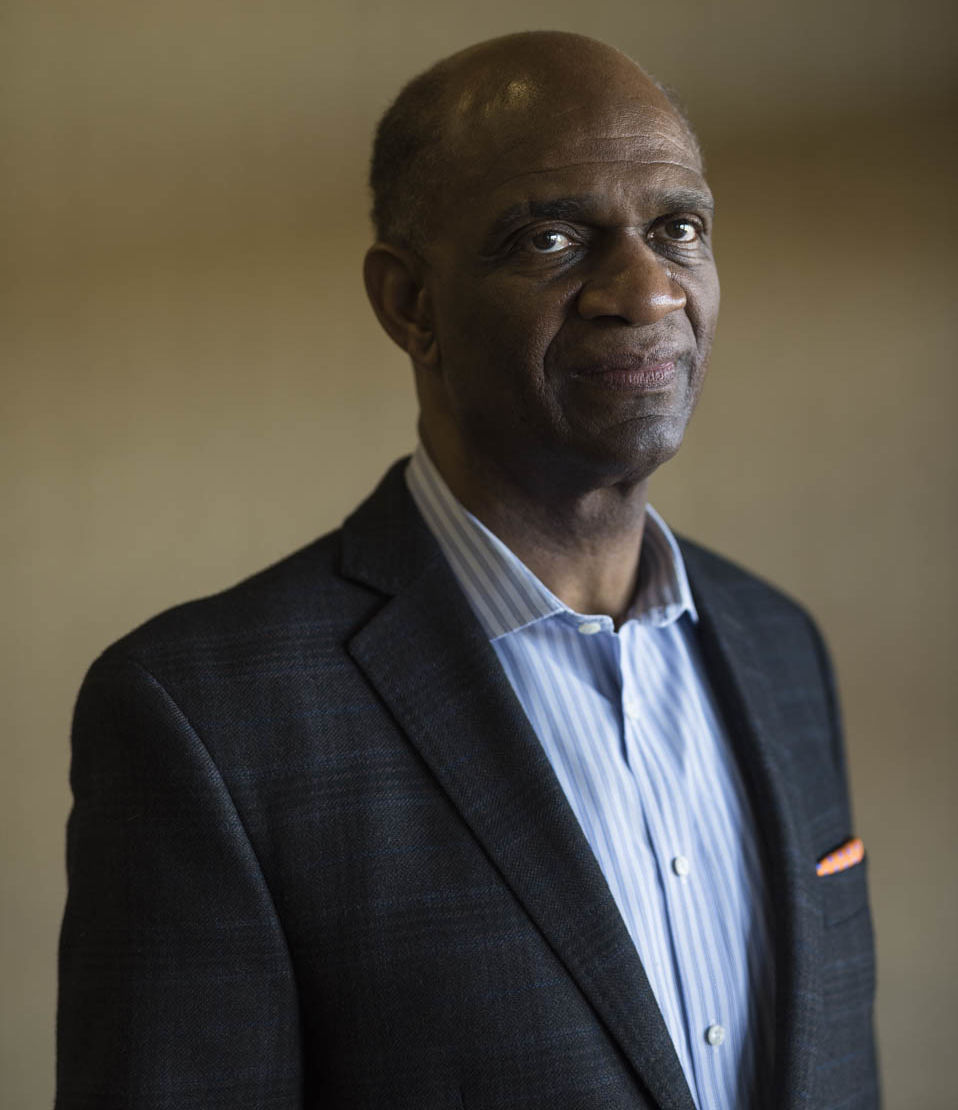
"Whatever has been birthed, the Lord birthed it—through the church family—not through me." —Pastor Kirbyjon Caldwell
Image: Max Burkhalter
Pastor Kirbyjon Caldwell
Windsor Village United Methodist Church, Almeda
You've built a mammoth congregation, from 25 members to more than 16,000, and now preside over the largest United Methodist church in the nation. Did you envision such growth at the start?
(Laughs) No! We had a plan in place and did our best to execute that plan as efficiently as we could, one step at a time. Before I realized it, the church had grown very dramatically. I never expected that kind of growth. Whatever has been birthed, the Lord birthed it—through the church family—not through me.
Your church now averages around 6,200 total worshippers each weekend. Is there ever a point at which you step up to the pulpit, see the enormous crowd, and have a Wow! moment?
That’s a good question. I would describe it as, “Thank you, Lord,” moments—on a regular basis. Particularly on Sundays.
Windsor Village has transcended the typical church model, with nine non-profit organizations you’ve started over the years. You’ve called this church-based commerce “social entrepreneurship.” Is social entrepreneurship the new model for faith-based communities to empower themselves?
I love this question! Believe or not, kingdom building and social entrepreneurship may seem new, but in actuality, it’s as old as the Old Testament. God told Adam and Eve to “tend the garden and guard it”—in modern terms, they were to cultivate it, grow it and add value to it. That’s what we’re doing.
Speaking of economics, there are also those who raise a dubious eyebrow to Christians preaching any kind of prosperity or financial savvy. But you make a clear distinction when it comes to your definition of stewardship.
John Wesley [credited as the founder of modern Methodism] said, “Gain all you can, save all you can, and give all you can.” I don’t have any problems at all with Biblical prosperity, because it’s not the kind of prosperity that gives God a bad name. It glorifies the Lord, and helps the least, the last and the lost—and helps improve the quality of community. Money intrinsically does not have a personality. It’s people who give money its personality and reputation, simply by what they do with it.
Many Americans were introduced to you as President George W. Bush’s spiritual advisor. You also have a close relationship with President Obama. When’s the last time you talked to Dubya?
(Laughs) I’ve not talked to him in a minute.
And President Obama?
Recently, I was fortunate to be one of the few pastors who prayed with him on his birthday.
Houston could be described as a faith capitol. As one of this city’s religious leaders, what do you feel makes Houston so perfect for communities of all faiths?
By and large, Houston is a can-do city, an entrepreneurial city, an eat-what-you-kill kind of city. That culture has spilled over into the faith communities, and they’ve prospered from it.
What’s your take on the backlash or criticism against certain mega-churches and famous pastors, and their salaries?
If you talk to enough people, you’ll find someone who has something ugly so say about all leaders. Also, people tend to focus on telepastors. It’s important to me to note that I have not personally gained from any of the [non-profit] projects like Pointe 2.3.4., and my salary did not increase because of the value added.
But how have you managed to stay above the fray?
I learned long ago: Mind your own business, stay in your lane and keep your head down—because they’ll shoot at you!
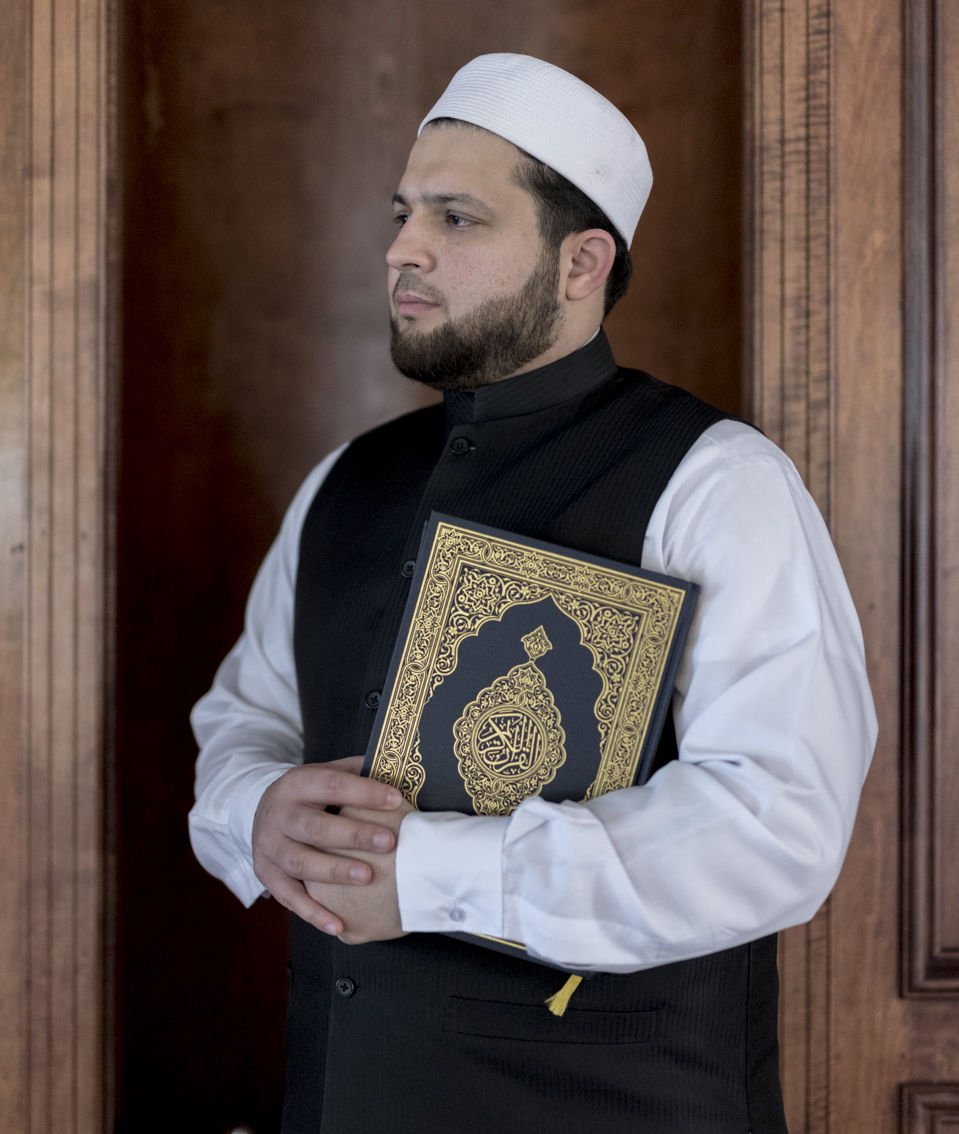
"People expect you to always be the best, and the better, and the highest person with high morals. I’m not saying that they shouldn’t—they should—but not just imams, everyone should live like that." —Imam Tauqer Shah
Image: Max Burkhalter
Imam Tauqer Shah
Maryam Islamic Center, Sugar Land
How important is interfaith outreach to you?
Interfaith is very important, and it is a very important aspect and a part our community as well. in our mosque and our center we have if activities at least once a month (with other communities.) This week we had a group of students that came from UH; the week after we had another group that came from the Houston Methodist community. We are in pretty good relationship with our neighboring churches. Every now and then I try to reach out to them. There’s a couple of pastors that I’m good friends with; we have a church that’s close to us in the same suburb. We are working with them visiting us. My Muslim community and my congregation are going to come to their church and learn about their faith and their way of life.
What’s been your biggest challenge, either in your personal faith journey or the biggest challenge you’ve faced in your mosque, in the past couple of years?
I would say keeping up with being, living as an imam and spiritual leader in the community and balancing my family and my hobbies and the things that I like to do as an individual. When you become a spiritual leader, people have too many expectations of you. They expect only good from you. People expect you to always be the best, and the better, and the highest person with high morals. I’m not saying that they shouldn’t—they should—but not just imams, everyone should live like that.
I noticed you have a Facebook. Where do you see social media’s relationship with Islam in the coming years, or now?
I think [social media] is very, very important. A lot of young speakers, young imams and leaders, they all have Facebook and Twitter, and are quite, quite active. The truth is that before, when it comes to marketing or announcements or sharing something with the community, before we would make an announcement at the mosque or send newsletters or emails or letters to their house. I think that technology has changed so much over time that I just have to post something on my Facebook page, on my personal or my [professional page] and I can reach out to so many people. Believe me, we’ve cut down on print media, for instance, when we have an event. We don’t really print out flyers anymore, we don’t have to pass out flyers at the congregation. We don’t have a newsletter anymore.
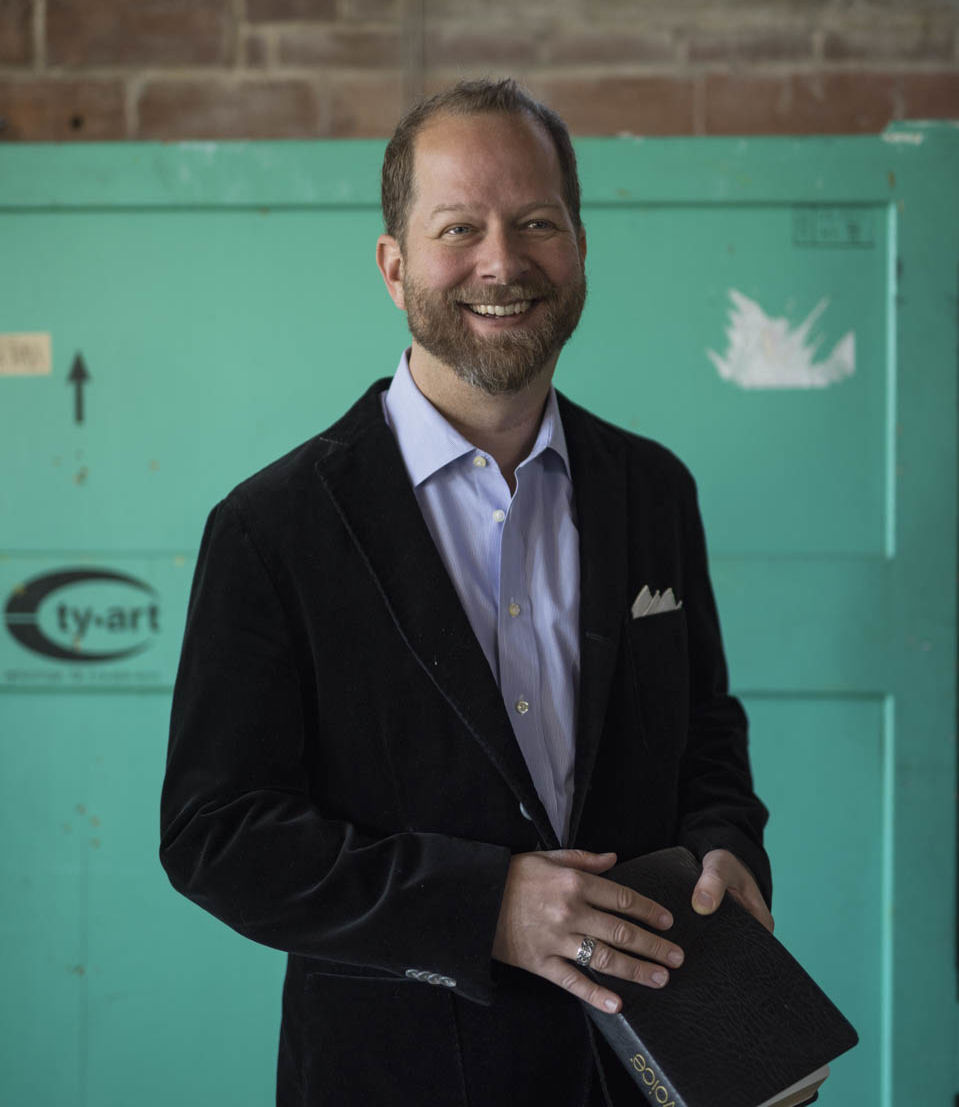
"My job is to create a culture where you teach people how to love each other well and love people across the globe really well." —Pastor Chris Seay
Image: Max Burkhalter
Pastor Chris Seay
Ecclesia, First Ward
What do you believe your role is within your church’s community?
You know, it’s a little bit different when you start a church, I think, in that my job is to create a culture where you teach people how to love each other well and love people across the globe really well. In December of 2015, we raised $750,000 to drill water wells across the globe, and it’s not because we feel guilty or like we have to—it’s because it’s just part of the culture, it just flows out of us. My job is to call that out in people and encourage it, and often to be the one when people are sick and they’re hurting and their marriage is in trouble and they lose their jobs to be there to comfort and love and encourage them and to teach them from the Bible, which is one the things, hopefully, I’m better at, and I love to do.
What to you has been the most dramatic difference between working in Houston and working in (your former church in) Waco?
Houston is the most ethnically diverse city in the United States. It’s a perfect place to—we talk about this [at Ecclesia]—"get a little taste of heaven." In heaven, it tells us that people of all colors and all races and all ethnicities [come together]. I think you see it [in Houston]. If you drive down Bellaire you can go eat Cambodian food and Chinese food and Indian food and for me, when I go down it’s heaven to me.
What’s been the biggest challenge for you in your faith, whether it’s your personal journey or the biggest challenge you’ve had with Ecclesia?
A couple of years ago I was walking in Houston with my kids, we were walking to my favorite local Vietnamese pho place. A guy in his SUV was texting on his phone and he swerved—we had no idea—and hit myself and my two kids. I broke my hip and I was physically unable to do the things I’m used to doing in my job and my life. It was really hard to learn to rely on other people. In a way it was really good and in another way I wouldn’t want it ever again—the pain was awful, all the rest of it was bad. But you always wonder, especially when you’re a pastor or a public figure, "Do people really love me, or do they love the things I can do for them?" because you’re constantly doing for them. It was really great for me at Ecclesia to learn that people love me even when I couldn’t do the things I normally do.
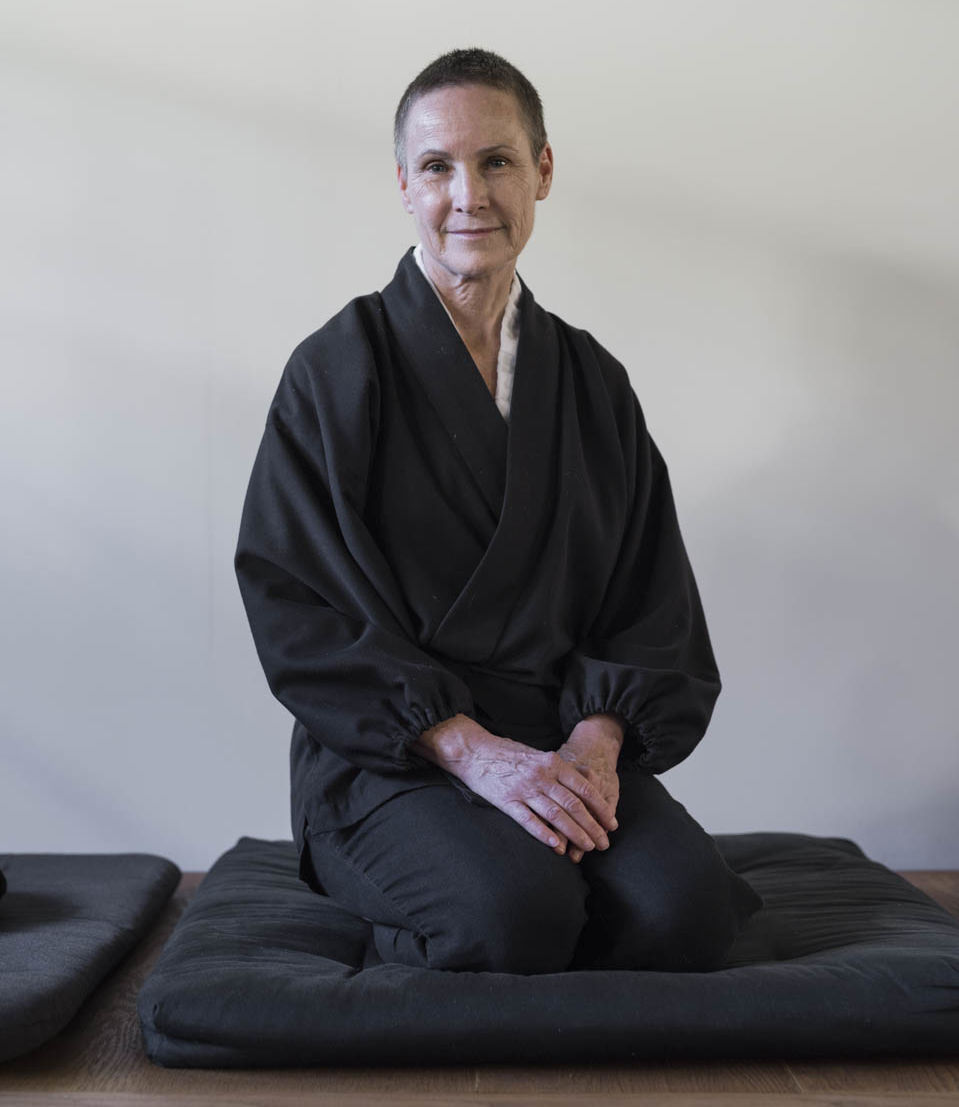
"People who are really living their lives fully can forget how to come back to the center of their life and the present moment of their life. Meditation really teaches everybody to recapture that way of being." —Abbot Gaelyn Godwin
Image: Max Burkhalter
Abbot Gaelyn Godwin
Houston Zen Center, Heights
Do you think Houston’s culture of open-mindedness fits Buddhism better, or at least Zen Buddhism?
Oh yes, I do. Openness is in the heart of Zen Buddhism, and it’s very important to express it. Because there’s probably a higher percentage of church-attending people in Houston, people are very open to Zen Buddhism, because they’re used to going to church regularly. It’s not an intellectual pursuit necessarily; it’s more of a faith enrichment.
Do you think meditation and that sort of calmness is good for folks who have a hectic lifestyle and are very high-strung?
It’s designed for that very person, it’s designed for the person who’s really engaged in the world with a very active mind and very active concerns. People who are really living their lives fully can forget how to come back to the center of their life and the present moment of their life. Meditation really teaches everybody to recapture that way of being. There are also techniques for people who have, for instance, major difficulties like post-traumatic stress disorder. For those people, for many of us who have had trauma, sitting still is very uncomfortable. So walking, meditation and various other techniques are very good.
Buddhism incorporates a lot of very, very old practices and traditions. Have you felt the need to modernize anything since you’ve been at the Zen Center?
Oh, yes. We’ve modernized many things and we’ve abbreviated many procedures, and we do that collectively, it’s pretty democratic. Since I’ve spent a lot of time in Japan and been in China—there’s Zen temples in China and Japan—when you do that, you see that when you go to a broad range of temples in Japan and China, they do things differently depending on the population. It’s also just a fundamental part of Buddhism to adapt to the needs of people that you’re serving. When we have children stay, for instance, you’re not supposed to touch the drum or the bells, but the children ring the bells and pound the drums and run all over. It’s more important that people feel comfortable than following an ancient rule.

